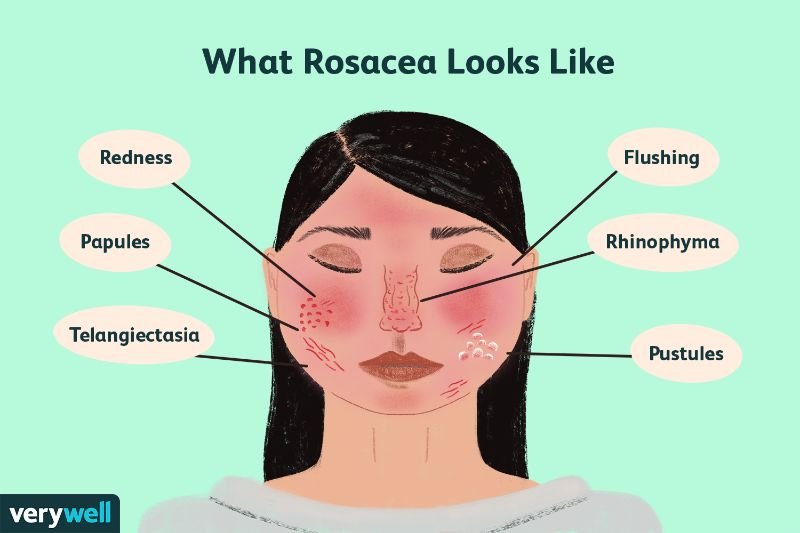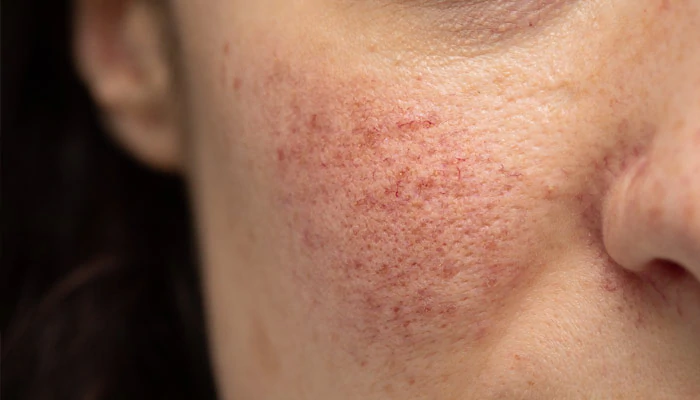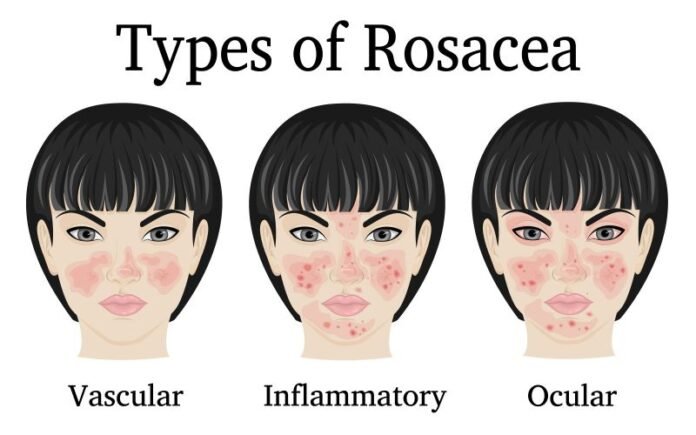Rosacea is a skin condition that is chronic and characterised by redness, inflammation and bumps or pustules that are small and red.
In the most severe of cases, a person’s skin can get thick making their nose inflamed and bulbous.
Many people see rosacea and think that it is acne, but these are two very different conditions.
How severe a person’s rosacea is depends on them, but without treatment, it tends to worsen over time. When it comes to this skin condition, most people do not make a full recovery.
Who is Affected by Rosacea?

Adults are affected by this skin condition and the majority of them are age 30 or older. Alcohol does not cause this condition and there are times where the cause is never discovered.
Experts believe that rosacea may run in families, but this is still being investigated. While the exact cause is not something doctors know, there are some risk factors that patients should be aware of, including:
- Having fair hair and very pale skin
- Taking corticosteroids
- Consuming spicy foods
- Taking blood pressure medications and other drugs that cause blood vessel dilation
- Being embarrassed, upset, angry or having other strong emotions
- Using steam rooms or saunas regularly
- Vigorous exercise
What are the Symptoms of Rosacea?

If someone has rosacea, there are several signs and symptoms that they can experience, with the most common being:
- The skin is blushing or flushing red, with the cheeks being most often affected
- The nose, cheeks and forehead have small red lumps and bumps
- The eyes feel gritty and have a burning sensation
- The nose is bulbous, red and swollen
- The nose and cheeks have small, visible blood vessels
Are there any Treatments for Rosacea?

There is no cure for rosacea and patients are at risk for flare-ups throughout their lives.
However, there are treatments that can help to improve and reduce a person’s symptoms.
Some of the most common treatments include oral antibiotics and topical medications, but these do come with the risk of side effects.
Topical treatments may irritate the skin, while oral medications may cause issues like stomach problems and vomiting.
Those who experience extreme redness and enlarged blood vessels may be candidates for laser surgery. However, this type of surgery can be very costly and there are risks and potential side effects that can occur.
What are some Natural Rosacea Treatments?
Some people prefer to use natural remedies to treat their rosacea and it is important to note that you should consult your doctor before trying any natural treatments to ensure safety.
When someone uses natural therapies for rosacea, there is the risk for skin irritation or sensitivity. It is important to keep in mind that when someone has rosacea, their skin is sensitive so always approach natural remedies with caution.
One popular natural option is using diluted white vinegar as a soak for the face or as a cleanser. This works to naturally disinfect the skin to remove impurities and alleviate the symptoms of the condition. Always do a patch test before using this remedy.
Green tea may also be helpful to alleviate inflammation and redness when cooled and then applied directly to the skin. This is due to this type of tea being a natural anti-inflammatory.
















